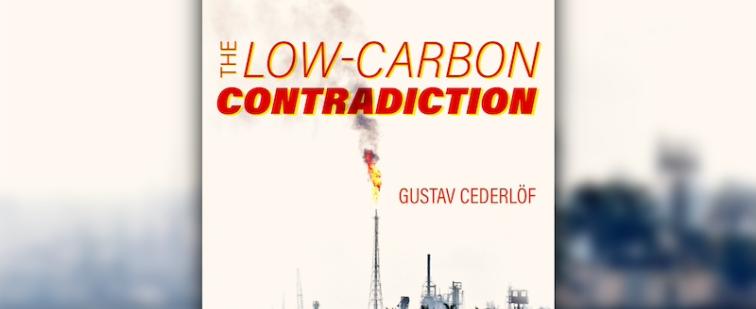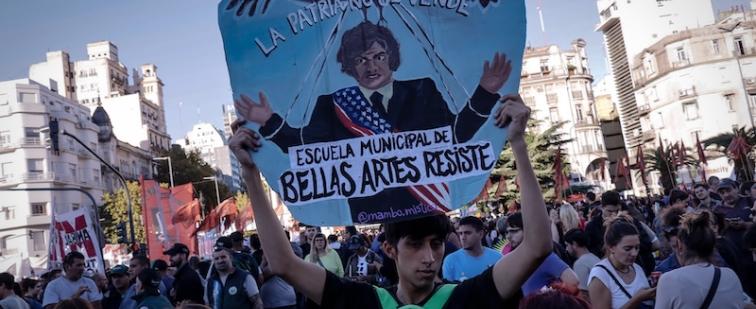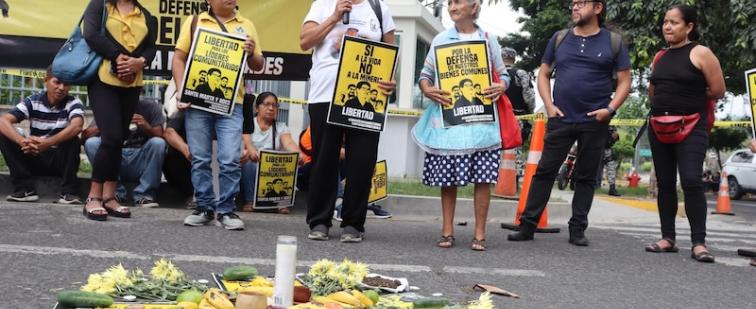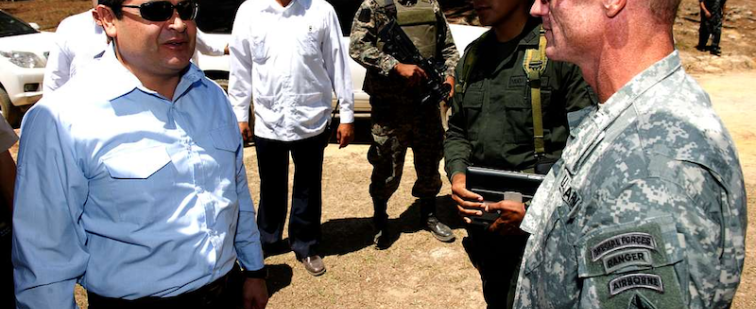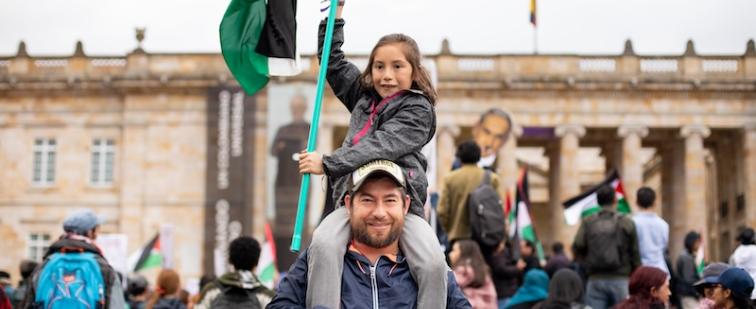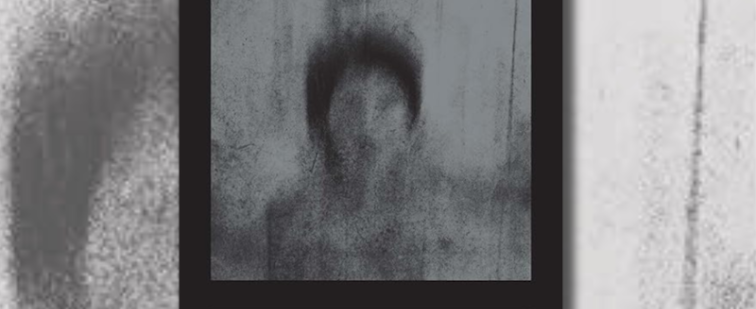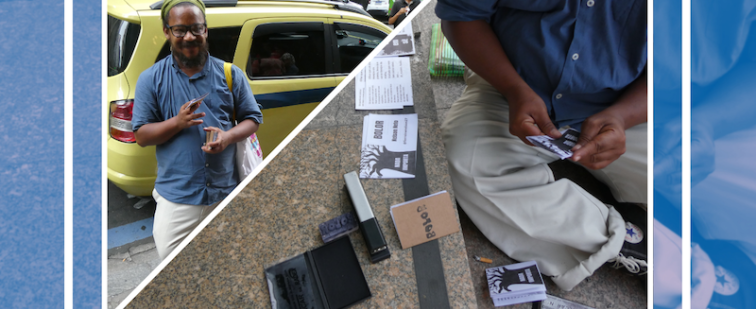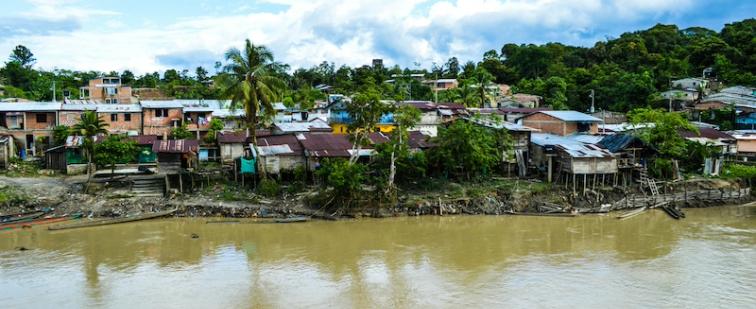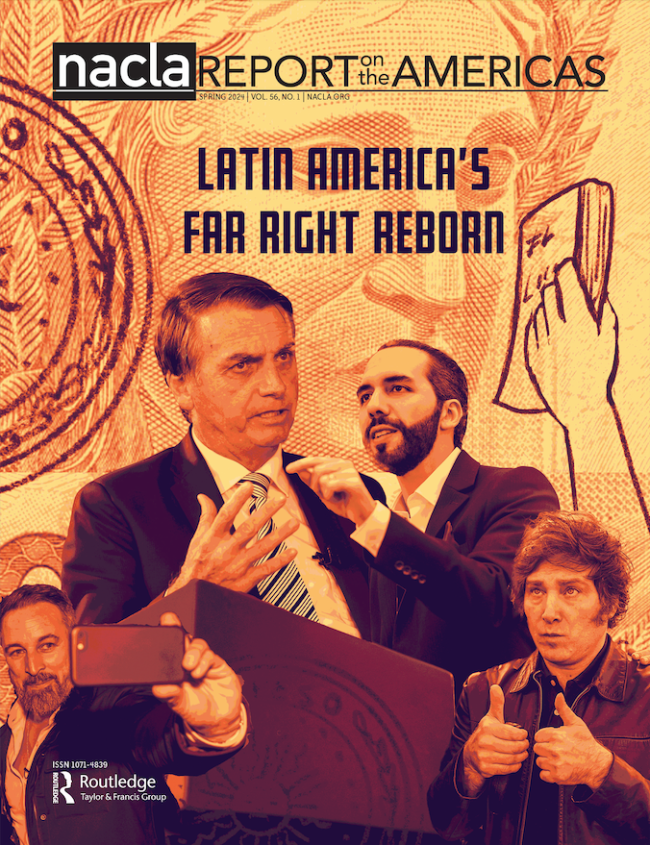Home
The July 5 mid-term election in Mexico will continue narcotraffickers' creeping reach into all sectors of the country's political life. The army and police are already drenched in narco-scandals, while reports show that political campaigns and government offices have also been infiltrated or co-opted by traffickers. But Mexico is not a failed state, such extensive corruption and illicit wealth creation actually depends on the state.
Thousands of Hondurans are now in the streets to protest the coup d'etat in their country. They have been met with tear gas, anti-riot rubber bullets, tanks firing water mixed with chemicals, and clubs. Police have moved in to break down barricades and soldiers used violence to push back protesters at the presidential residence, leaving an unknown number wounded. If the coup leaders were desperate when they decided to forcibly depose the elected president, they are even more desperate now.
Worldwide condemnation has followed the coup that unseated President Manuel Zelaya of Honduras on Sunday, June 28. Nation-wide mobilizations and a general strike demanding that Zelaya be returned to power are growing in spite of increased military repression. One protester outside the government palace in Honduras told reporters that if Roberto Micheletti, the leader installed by the coup, wants to enter the palace, "he had better do so by air" because if he goes by land "we will stop him."
From nicanet.org: As of 11:15am, Caracas time, President Zelaya is speaking live on Telesur from San Jose, Costa Rica. He has verified the soldiers entered his residence in the early morning hours, firing guns and threatening to kill him and his family if he resisted the coup. He was forced to go with the soldiers who took him to the air base and flew him to Costa Rica. He has requested the U.S. Government make a public statement condemning the coup, otherwise, it will indicate their compliance. He said that he has not resigned and that until his term ends in 2010 he remains president of Honduras. The Honduran Foreign Minister and the ambassadors to Honduras from Cuba, Venezuela, and Nicaragua were detained by the military. The ambassadors, after suffering physical mistreatment by the military, were set free but the Foreign Minister, Patricia Rodas, remained in military custody.
On June 29, Obama will host a meeting with Colombian President Álvaro Uribe at the White House. The two leaders should discuss the ongoing wave of violence against indigenous communities in the South American country. The murder last week of Marino Mestizo is a case in point. Protecting the lives and rights of indigenous communities is one of the many ways that the two leaders could help the cause of peace in the war-torn nation as well as help stem the flow of illegal drugs.
The Peruvian government and international media reports say that the Shining Path guerrilla group is in the process of staging a comeback. But statistics on violent acts linked to the Shining Path are inconclusive and statements from the guerrillas themselves present conflicting accounts of its activities and professed goals. Nonetheless, recent events raise pressing questions about the group's current status and potential for growth.
Relations between Bolivia and the United States took a dive during the Bush administration. Overtures made by both the Obama administration and Bolivian President Evo Morales suggest a possible thaw in bilateral relations. But stubborn and perhaps insurmountable obstacles stand in the way of diplomatic ties moving beyond Bush-era lows.
Most works on the Cuban Revolution concentrate on larger political issues, breakthrough moments, and endless political debates, but this book strikes a more personal, day-to-day note without ever neglecting the political. It reminds us of the ties between the political and the personal, which are often overlooked in writings about famous personages.
Correa says that Ecuador's government-backed “Citizens’ Revolution” will accelerate at an intensifying pace over the next four years. With a majority in the National Assembly and a Constitution that was drafted and approved during his first government by a broad convergence of allied forces, his path seems wide open. He also promises to work with other South American governments to create an alternative financial architecture for the region.
Mauricio Funes overcame staggering odds in becoming El Salvador's first left-leaning president. Having just taken office, his administration now faces perhaps the even more difficult task of governing, and expectations among his supporters are hugely inflated. Though presented with an unprecedented opportunity for change, Funes and the Salvadoran people face both perils and promise in the current political moment.

